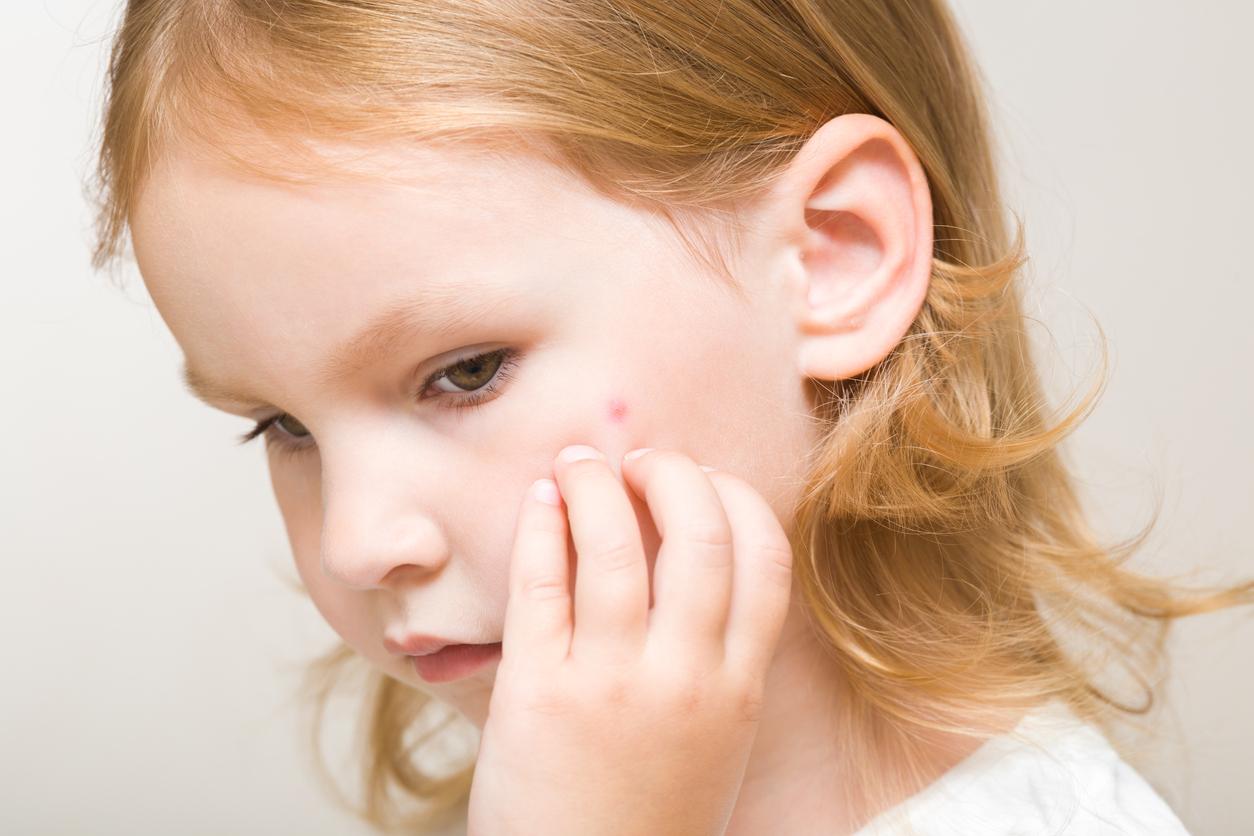A few symptoms make it possible to identify the “5th disease”, an infectious disease with a funny name, most of the time benign for children.

- Fifth disease is an epidemic pathology that affects children.
- It is an infectious erythema and a respiratory tract infection.
- Although it is usually harmless, it can cause complications in an already anemic child and in pregnant women.
We are in full season of the 5th disease… Indeed, spring is the time when occur most often small outbreaks of this peculiarly named disorder in children.
5th disease: symptoms similar to colds and flu
Also called disease of the “slapped cheek“, or erythema infectiosum, it is a common disease in children that is mainly characterized by a bright red rash on the face.
“5th disease” also refers to the fact that in the succession of discoveries of infectious diseases, erythema infectiosum is the fifth eruptive disease that has been discovered.
Symptoms that can identify it can be reminiscent of a cold or flu: fever, dry cough, runny nose or fatigue and muscle pain.
Indeed, this disease is an infection of the upper respiratory tract (nose, mouth, pharynx, larynx) caused by a virus, human parvovirus B19. It is transmitted by inhaling droplets of saliva or by indirect contact with contaminated objects brought to the mouth.
The child presents pink rashess lace-like on the arms and legs, which extend towards its extremities, accompanied by itching which sometimes occurs after exposure to heat or sun.
5th disease: potentially dangerous complications
If it is very light in most cases, erythema infectiosum can nevertheless represent a danger in some children: “This disease is usually benign for the child. However, there is a risk of complications for children with haemolytic diseases: thalassemia, sickle cell disease, spherocytosis, etc. This can lead to acute anemia due to the absence of production of red blood cells in the marrow.“, says pediatrician Sylvie Hubinois.
The risks are also present for pregnant women since contamination can cause serious complications for the fetus, whatever the stage of pregnancy, if the mother is not immunized having already contracted the disease.
This is why experts recommend respecting some basic hygiene measures such as washing your hands, coughing or sneezing into a tissue or the crook of your elbow to limit the transmission of the virus.















